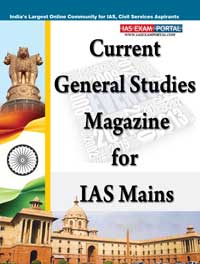Lokpal Delay : Current General Studies Magazine (April 2017)

Current General Studies Magazine (April 2017)
General Studies - II "Polity Based Article" (Lokpal delay)
The Supreme Court has asked the Union government to appoint the Lokpal without the Leader of Opposition being a part of the selection panel. There is no Leader of Opposition recognised as such by the Speaker in the present Lok Sabha. This is often cited as the reason for not appointing the Lokpal. It is surprising that the SC did not ask the government why the position is vacant in the first place.
There is a lot of disinformation surrounding the Leader of Opposition. It is a statutory office provided for in the Salary and Allowances of Leaders of Opposition in the Parliament Act, 1977. Section 2 of this act states: “‘Leader of the Opposition’, in relation to either House of Parliament, means that [a] member of the Council of States or the House of the People… who is, for the time being, the Leader in that House of the party in opposition to the Government having the greatest numerical strength and recognised as such by the Chairman of the Council of States or the Speaker of the House of the People…”
Two things are made clear by the act: One, the leader of the party in opposition to the government which has the greatest number becomes the Leader of Opposition. Two, the Speaker needs to recognise him/her as the Leader of Opposition. The law is clear that the Speaker is required to recognise the leader of the numerically largest party in opposition as the leader of opposition. The option of not recognising him/her is just not available.
Since it is a statutory position, why is there no Leader of Opposition when the numerically largest party has 44 members? Under the law, even if the party in opposition has a single member, he/she is entitled to be recognised. In the Delhi assembly where there is a similar law in force, the BJP — which had only three members in a House of 70 (now four) — proposed one of its members as the Leader of Opposition. The Speaker recognised him as such. By doing so, the Speaker was not obliging the BJP, he was performing a duty imposed by the statute.
A mysterious rule is often quoted by some self-styled experts, which requires a party to have at least 10 per cent of the members of the House for the Speaker to recognise someone as the Leader of Opposition. There is no such rule. Yes, there is direction 121 issued by the Speaker for recognising a party or group for the purpose of providing certain facilities in the House. Under this direction, issued by Speaker G.V.
Mavalankar, to be recognised as a legislature party, a party should have at least one- tenth of the strength of the House. This direction relates to the recognition of a party, not the Leader of Opposition. It has become redundant after the enactment of the Tenth Schedule of the Constitution under which even a one-member party is recognised as a legislature party.
According to Practice and Procedure of Parliament by M.N. Kaul and S.L. Shakdher, “From 11th Lok Sabha onwards while legislature parties continue to enjoy certain functional facilities on the basis of their numerical strength… the practice of according recognition by the Speaker in terms of directions 120 and 121 was done away with.”
So, when the SC asked the government to select the Lokpal, even in the absence of the Leader of Opposition, it should also have asked why the statutory provision was ignored. The statute implies that there shall always be a Leader of Opposition, so long as there is an opposition in the House. Recognising the Leader of Opposition is not a proceeding of the House within the meaning of Article 122 of the Constitution, which keeps the judiciary out of House matters. It is a statutory duty of the Speaker and the court can thus ask why action hasn’t been taken, resulting in the delay in appointing a Lokpal.
(Source- The Indian Express)

